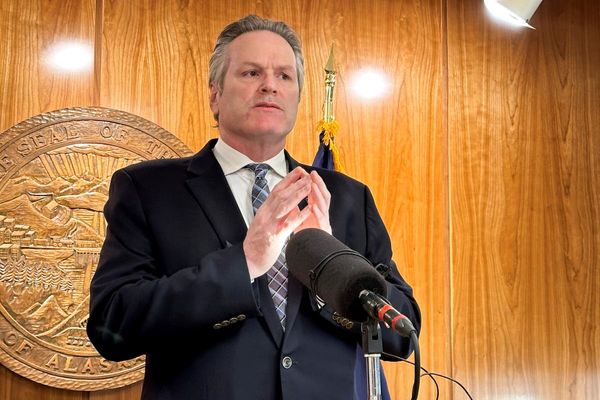/https://static.texastribune.org/media/files/d60877cd24fb0010705b05707be8fbf8/2606%20SBOE%20Meeting%20OA%200018.jpg)
Four new charter schools are one step closer to opening in Texas after the State Board of Education voted to approve them Friday.
On Wednesday, Texas Education Agency Commissioner Mike Morath recommended SBOE members approve five schools. The board greenlit the opening of Infinite Minds in Arlington, Pathway Academy in Big Spring, The Texas Girls School in Austin and Unparalleled Preparatory Academy in Manor.
Members rejected Visionary STEM Academy’s application to open in Terrell. Marisa Perez-Diaz, a San Antonio Democrat representing the SBOE’s District 3, who cast one of the 11 votes to veto the charter, said she sought more specifics in the school’s plan.
“I want to see names of individuals who have already been along with you in the journey that have committed to supporting you before you get your charter,” Perez-Diaz said. “For me, the responses we received are still incredibly insufficient for me.”
The approved charter applications will now return to the TEA for final review.
Representatives from each of the schools gave presentations to the 15-member body earlier in the week. If they receive final approval from the TEA, some of the schools said they will focus on making STEM careers more accessible to students and equipping them with entrepreneurship skills while at least one other would place a heavy emphasis on literacy.
The timing of the new charter proposals frustrated some teacher advocacy groups and public education advocates, who say the new schools would siphon state funds away from traditional school districts.
State lawmakers failed to approve additional funds for public schools during last year’s legislative session amid the fight for school vouchers, which would allow families to use taxpayer dollars to pay for private and religious schools. The lack of legislative funding, coupled with inflation and the expiration of pandemic relief dollars later this year, has left school districts bracing for multi-million dollar budget deficits and cuts to services that helped support students and educators throughout the COVID-19 pandemic.
“There are only so many tax dollars out there. And there's only so much that will go to education, and what goes to education should go to public schools,” Texas State Teachers Association spokesperson Clay Robison said. “And the expansion of charter schools, which are technically public schools — technically — should be done with a lot of caution. And this is not the time, particularly this year, to do it.”
Charter schools receive state funding based on average daily student attendance and do not receive money from local tax revenue like traditional public schools. They do not need to comply with as many state regulations as traditional school districts do, but the TEA says they are held to strict academic standards and expected to take an innovative approach to the classroom.
More than 420,000 kids attend the nearly 900 charter campuses in Texas, representing about 8% of the state’s more than 5 million public school students.
The Texas Public Charter Schools Association opposes the notion that charter schools, which have also struggled with a lack of new state funding, take away resources from traditional public schools.
“There's just no reason to pump the brakes on creating those opportunities,” spokesperson Brian Whitley said of the five charter schools under consideration. “Demand for public charter schools has been growing over the years. Families recognize that a one-size-fits-all all system doesn't work. So it will benefit a lot of families, and it will benefit a lot of children to continue allowing new public charter schools to open.”
Morath has faced criticism in recent years for what some have described as hypocrisy: granting underperforming charter schools permission to expand while increasing his agency’s scrutiny of public school districts like Houston ISD, which was placed under the state’s oversight last year. Earlier this year, the TEA placed IDEA Public Schools, the state’s largest charter school network, under a conservatorship following an investigation into improper spending.
On Wednesday, Morath described the process charter applicants have to go through to receive approval, which includes several rounds of application reviews, an interview, SBOE review and final vetting by the TEA.
If approved, Morath said charter schools are held to rigorous performance standards. State approval can be revoked if a school’s performance is persistently low.
Since 2016, only 13% of the state’s charter applications have been approved, according to the TEA.
SBOE members asked the various charter school representatives what services they would provide to students that children can’t currently find at other schools in their communities.
“When I think of a charter school, I'm looking for something different,” said District 14 member Evelyn Brooks, a Frisco Republican, said Wednesday. “I'm looking for a need that's not met because it is taking away funding from public schools, for those students who are in those seats. So it should be something different. It should be something unique.”
Disclosure: IDEA Public Schools, Texas Public Charter Schools Association and Texas State Teachers Association have been financial supporters of The Texas Tribune, a nonprofit, nonpartisan news organization that is funded in part by donations from members, foundations and corporate sponsors. Financial supporters play no role in the Tribune's journalism. Find a complete list of them here.
Just in: Former U.S. Rep. Liz Cheney, R-Wyoming; U.S. Sen. John Fetterman, D-Pennsylvania; and Oklahoma Gov. Kevin Stitt will take the stage at The Texas Tribune Festival, Sept. 5–7 in downtown Austin. Buy tickets today!










